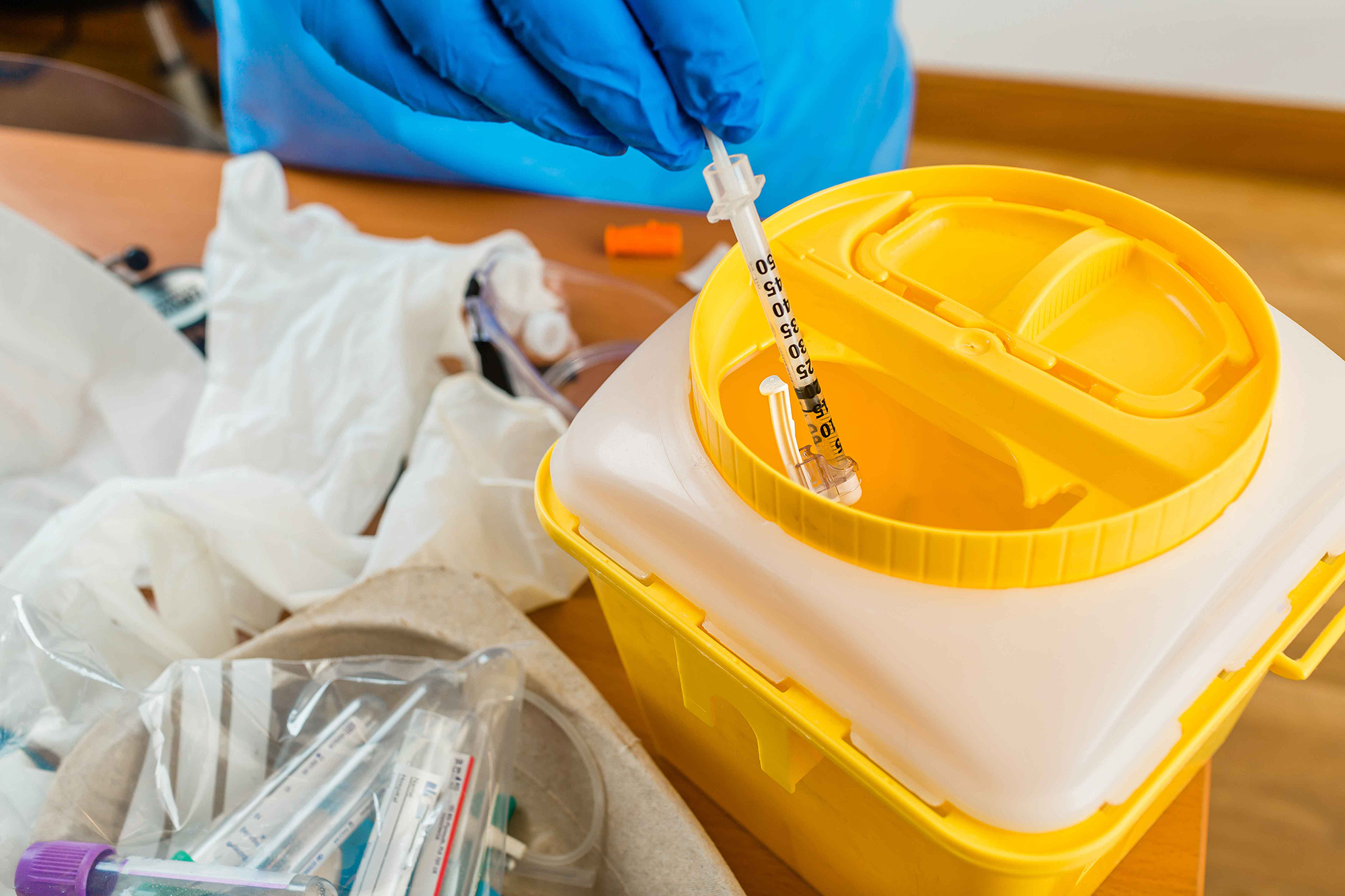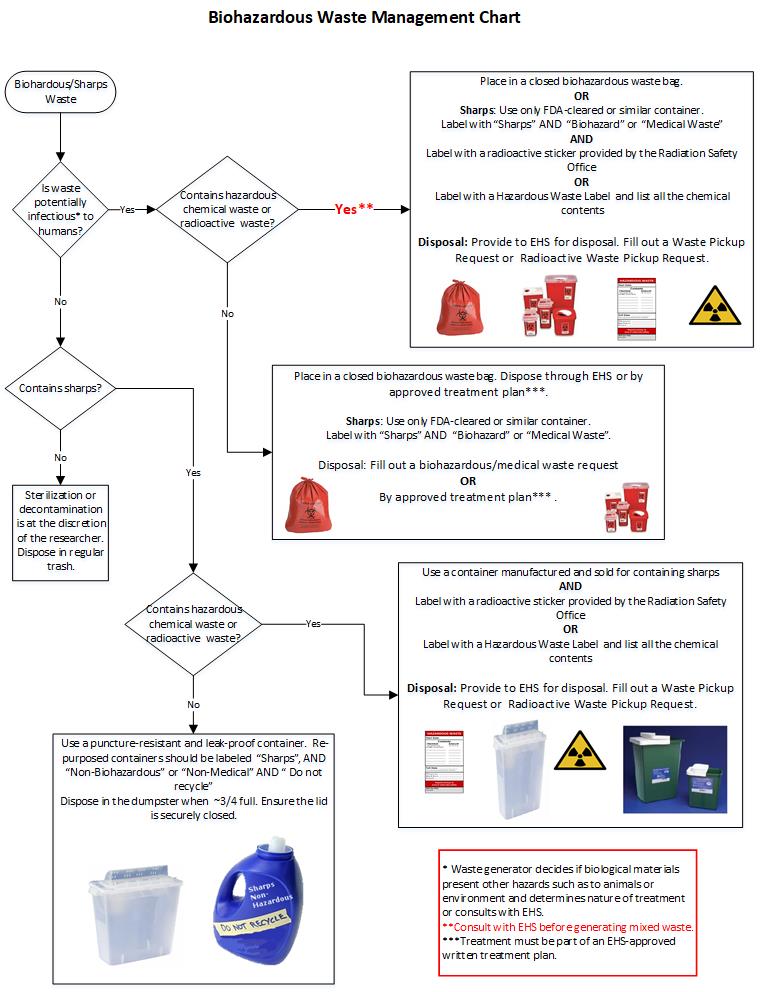Comprehensive Medical Waste Disposal Services: Making Certain a Healthy Environment
Ensuring Safe Handling and Disposal of Medical Waste
Making certain secure handling and disposal of clinical waste is of extremely important relevance in medical care setups. Improper monitoring of medical waste can pose considerable dangers to the atmosphere, public health and wellness, and medical care workers. In this introduction, we will certainly discover the significance of appropriate medical waste management, the risks linked with incorrect handling and disposal, as well as the standards and strategies that can be executed to ensure its safe disposal.
Importance of Proper Clinical Waste Administration
Correct clinical waste monitoring is of utmost significance in making sure the safety and wellness of health care specialists, patients, and the public. Medical waste describes any kind of waste generated by health care facilities during the diagnosis, therapy, or booster shot of animals or people. This waste can posture major wellness risks otherwise managed and gotten rid of appropriately.
One of the primary factors why proper medical waste management is crucial is to avoid the spread of transmittable diseases. Medical waste, such as made use of needles, polluted dressings, and organic materials, can bring unsafe pathogens. If not handled and taken care of properly, these virus can be sent to medical care workers, individuals, waste trainers, and also the public, leading to the possible episode of diseases.
Additionally, proper clinical waste management helps safeguard the environment - medical waste disposal. Clinical waste has harmful products, consisting of chemicals, drugs, and contaminated materials. When not taken care of suitably, these materials can infect dirt, water bodies, and the air, posturing a significant risk to communities and public health and wellness
Additionally, efficient medical waste administration guarantees compliance with neighborhood policies and worldwide standards. Governments and regulatory bodies have actually established protocols and standards to make certain the safe handling, storage, transport, and disposal of clinical waste. Following these regulations is important to stay clear of lawful repercussions and maintain the reputation and reputation of medical care centers.
Dangers of Improper Handling and Disposal

If clinical waste is not effectively disposed of,People can also be exposed to these infectious conditions. If contaminated needles or other sharps are not disposed of in assigned puncture-proof containers, they might unintentionally puncture individuals, leading to prospective infections. Additionally, if clinical waste is not set apart correctly, there is a danger of cross-contamination in between different types of waste, further increasing the chances of illness transmission.
Improper disposal of clinical waste can additionally have detrimental impacts on the atmosphere and the general public. If medical waste is not dealt with and gotten rid of correctly, it can contaminate water resources, dirt, and air, causing the spread of illness and pollutants. This can have long-lasting consequences on ecosystems and public wellness.
Guidelines for Safe Handling of Medical Waste
Implementing effective procedures for the risk-free handling of clinical waste is necessary in guaranteeing the security of health care experts, patients, and the basic public. These standards are critical in decreasing the dangers linked with the handling and disposal of medical waste, such as infections, injuries, and ecological pollution.
First and leading, healthcare centers must develop a detailed waste management strategy that follows regional, national, and international laws. This plan must consist of clear directions on waste partition, product packaging, storage, labeling, and transportation. It is important to divide various kinds of waste, such as sharps, contagious products, pharmaceuticals, and non-hazardous waste, to avoid cross-contamination and advertise secure disposal.
Additionally, health care employees must receive thorough training on proper waste handling strategies. They must be informed on the possible threats of medical waste, the suitable use individual protective equipment (PPE), and the appropriate treatments for taking care of, carrying, and dealing with different types of waste.
Moreover, health care centers need to frequently keep an eye on and investigate their waste administration methods to ensure conformity with standards. This consists of carrying out normal evaluations, evaluating waste handling procedures, and supplying responses and training to team participants.
Reliable Approaches for Garbage Disposal
To make certain the risk-free handling and disposal of medical waste, it is necessary to employ efficient techniques for waste disposal. Clinical waste can posture substantial threats to public health and wellness read what he said and the environment otherwise dealt with and gotten rid of properly. Healthcare facilities and waste administration organizations need to carry out appropriate strategies to reduce these risks.
One efficient approach for waste disposal is partition. It includes dividing various sorts of clinical waste based on their qualities. Partition enables the proper therapy and disposal of each waste category, minimizing the potential for contamination or injury. Healthcare centers ought to offer clear guidelines and training to employee on how to segregate waste properly.

Furthermore, healthcare centers need to work together with licensed waste management companies to make sure appropriate disposal of clinical waste. These business have the competence and devices needed to safely deal with and get rid of of clinical waste in compliance with guidelines and finest practices.
Training and Education for Health Care Professionals
Medical care experts play an essential duty in making certain the risk-free handling and disposal of clinical waste through extensive training and education. It is necessary for doctor to have a deep understanding of the possible threats connected with medical waste and the proper methods for its administration. By getting correct training, healthcare experts can minimize the prospective transmission of infectious diseases, protect against ecological contamination, and shield both themselves and the public.

Additionally, training programs ought to emphasize making use of personal protective devices (PPE) and appropriate hand health techniques when managing clinical waste. medical waste removal service. Medical care professionals must understand exactly how to correctly make use of and dispose of PPE to protect themselves from possible exposure to harmful materials. They ought to additionally be enlightened on the significance of routine handwashing and the appropriate use hand sanitizers to reduce the spread of contagious illness
Continuing education and learning and routine updates on clinical waste monitoring methods are crucial for healthcare experts. As laws and guidelines progress, it is necessary to keep doctor informed regarding any type of adjustments in protocols and best practices. This will certainly make sure that they remain up-to-date and preserve a high criterion of safety and security in handling and getting rid of of medical waste.
Conclusion
To conclude, proper handling and disposal of medical waste is vital to ensure the safety of health care specialists, patients, and the atmosphere. Disregarding to comply with laws and guidelines can cause different risks and hazards. Carrying out reliable approaches for waste disposal and giving appropriate training and education and learning for healthcare experts are important in maintaining a risk-free medical care setting. By sticking to these techniques, we can reduce the possible threats connected with clinical waste.
Medical waste refers to any kind of waste generated by health care facilities during the diagnosis, therapy, or immunization of people or pets. If clinical waste is not segregated effectively, there is a threat of cross-contamination in between different types of waste, further boosting the chances of illness transmission.
It is essential to divide different types of waste, such as sharps, transmittable products, pharmaceuticals, and non-hazardous waste, to stop cross-contamination and promote secure disposal. WasteX Medical Waste Disposal.
To make sure the risk-free handling and disposal of clinical waste, it is necessary to utilize efficient approaches for waste disposal. Furthermore, health care facilities should develop a regular waste collection and transport routine to avoid waste build-up and minimize the risk of crashes or contamination.